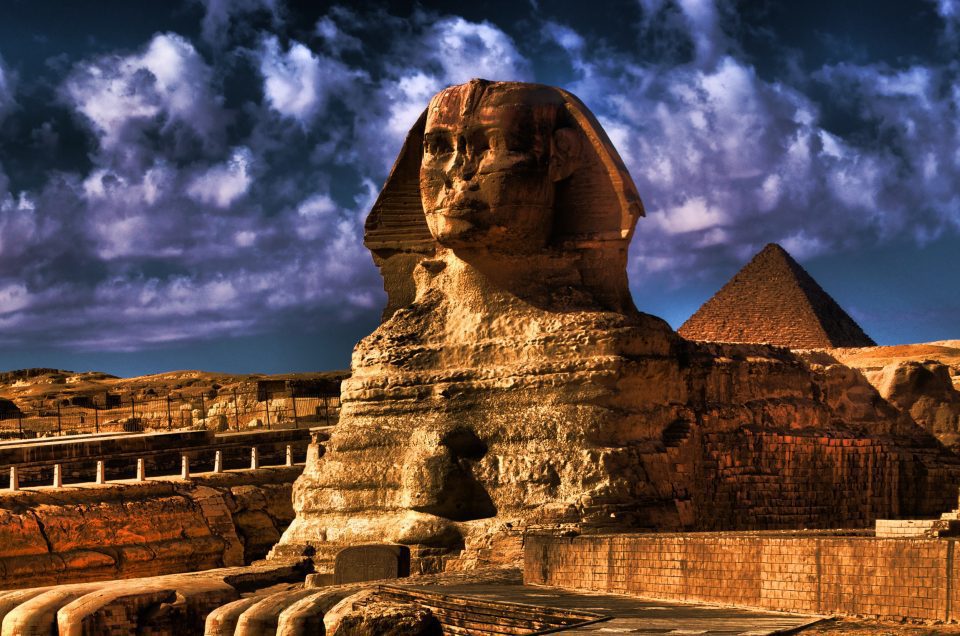In the realm of ancient civilizations, few pantheons rival the complexity and intrigue of the Gods of Egypt. From powerful deities governing the forces of nature to mythical beings embodying human virtues and vices, the gods and goddesses of Ancient Egypt offer a captivating glimpse into the spiritual beliefs and cultural ethos of this enigmatic civilization. Join us on a mythological odyssey as we delve into the divine realm of the Gods of Egypt, unraveling their stories, symbols, and significance.
Introduction to Egyptian Mythology
Egyptian mythology is a tapestry woven from countless tales and legends, spanning thousands of years of civilization along the banks of the Nile River. At the heart of this rich tapestry are the gods and goddesses worshipped by the ancient Egyptians, revered as divine beings who wielded immense power over the cosmos and the affairs of mortals.
Ra: The Sun God and Creator
At the zenith of the Egyptian pantheon stands Ra, the radiant Sun God and supreme creator. Believed to traverse the sky in a solar barque, Ra symbolized the eternal cycle of birth, death, and rebirth. As the bringer of light and life, Ra was worshipped fervently, with temples dedicated in his honor across the land.
Osiris: God of the Afterlife
Osiris reigns as the benevolent ruler of the underworld, guiding the souls of the deceased through the perilous journey of the afterlife. Revered as a symbol of resurrection and renewal, Osiris embodied the cyclical nature of existence, where death was not an end but a transition to a new beginning.
To truly grasp the legacy of ancient gods, don’t miss our Luxor tours, where temples like Karnak and Luxor bring mythology to life.
Isis: Mistress of Magic and Motherhood
Isis, the enchanting goddess of magic and motherhood, captivated the hearts of ancient Egyptians with her boundless compassion and unwavering devotion. As the consort of Osiris and mother of Horus, Isis symbolized the nurturing essence of femininity and the transformative power of love.
Horus: Avenger of the Divine
Horus, the valiant falcon-headed god, emerged as the avenger of his father Osiris, seeking justice against the treacherous Set who slew the king of the gods. Embodied in the pharaohs of Egypt as the living Horus, this divine protector ensured the prosperity and stability of the kingdom.
Explore Aswan for a deeper connection with Egypt’s spiritual past—home to the stunning Philae Temple dedicated to goddess Isis.
Anubis: Guardian of the Dead
Anubis, the jackal-headed god, presided over the solemn rites of mummification and guided the souls of the departed to the judgment hall of Osiris. With his keen insight and unwavering vigilance, Anubis safeguarded the sanctity of the burial rites, ensuring passage to the afterlife.
Seth: The Chaotic Trickster
In contrast to the benevolent deities of Egypt stands Seth, the tumultuous god of chaos and desert storms. Often depicted as a fearsome creature with the head of a mysterious animal, Seth embodied the untamed forces of nature and the unpredictability of existence.
Start your journey in Cairo, where ancient beliefs echo through the Egyptian Museum and the timeless Pyramids of Giza.
Ma’at: Goddess of Truth and Balance
Ma’at, the serene goddess of truth and balance, governed the cosmic order of the universe, ensuring harmony and equilibrium among gods and mortals alike. Through adherence to the principles of Ma’at, ancient Egyptians sought to maintain cosmic balance and uphold the moral fabric of society.
Conclusion: Legacy of Divine Majesty
As we journey through ancient Egypt, the mythical realm of the Gods of Egypt, we are reminded of the enduring legacy of this ancient pantheon. From the radiant brilliance of Ra to the compassionate embrace of Isis, each deity embodies a facet of the human experience, reflecting the aspirations, fears, and aspirations of the ancient Egyptians. Though millennia have passed since their worship, the gods and goddesses of Egypt continue to inspire awe and reverence, their stories woven into the fabric of human consciousness for eternity.
Have questions or need help planning your trip? Contact us or call us at +20 100 708 7746.

